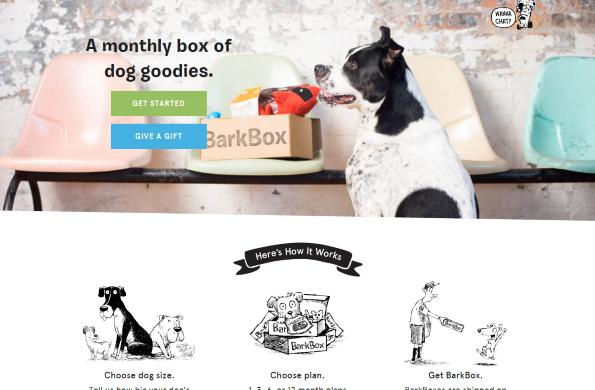By Larry Alton
Startups come in all shapes and sizes, but their success rate is always low. More than 80 percent of all startups fail, according to Forbes, and many factors contribute to this poor success rate, including deficient planning, imperfect business ideas, and limited capital in the market.
Some startups fail miserably, like Zillionears, a platform that let artists release songs with a dynamic pricing system. The price dropped each time a fan shared the word about an artist’s music. The theory seemed good from the outside, but it totally tanked when put into practice.
Other startups like Uber, the famous new ride-sharing service, took off quickly, and it’s opened the door to a number of comparable services like Lyft and Shift. Car sharing is a popular endeavor because of Uber’s unprecedented success.
A similar story exists for subscription box service startups. Subscription box services, including Birchbox, Barkbox, Dollar Shave Club, Ipsy, and BroBox, first appeared just a few years ago. Thanks to their success, countless subscription box service startups are coming out of the woodwork, creating a startup craze that’s sweeping the world with its surprising successes.
Why Do Subscription Box Services Work?
Birchbox is probably the most recognizable subscription box service on the market today, and it’s arguably the service that put the whole startup trend into motion. It launched in 2010 offering boxes filled with beauty, grooming, and lifestyle products for a set fee each month. Since its inception, the company has garnered 800,000 active subscribers to date and has $96 million in sales.
It’s only been a little more than five years since Birchbox made its debut, but the industry is more popular than ever. It begs the question, why do these particular startups work so well? Several factors answer that question, but perhaps the most prominent is novelty.
Consumers also love the curation factor of subscription boxes, and they love the idea of receiving a “gift” every month. It enhances the shopping experience by turning simply buying what you want into receiving things you didn’t even know you wanted.
The Business of Supporting Subscription Box Startups
This trend has become so popular over the last few years that it’s spawning new companies that help startups get their subscription box services off the ground. CrateJoy, for example, specializes in helping entrepreneurs learn the ins and outs of the subscription box business and to launch their own services. This type of business owes its very existence to the exploding subscription box industry.
Software as a service (SAAS) in this particular industry is ingenious. It offers an opportunity for businesses to capitalize on a market that continues to grow and attract more entrepreneurs. CrateJoy has proven that this particular SAAS can be highly successful. It’s been open for less than a year, but it already claims more than 8,000 paying merchants using their service.
Will Subscription Box Services Continue to Rise?
Thanks to the novelty of the service, the industry is still ripe for the picking. One element that makes it so lucrative is the opportunity for expansion, which continues to strengthen as more services enter the business. People who can offer new products that no one has seen in box services will join the ranks of the major players in the industry.
Even though the trend exploded almost immediately after its inception, it’s not expected to rise as quickly. There isn’t a sign of decline in the near future, but the growth is slowing down thanks to the number of entrepreneurs and companies entering the business and to the older ones growing bigger and more dominant in their niche.
Startups in this market face challenges. Larger subscription services already rooted in the industry are adopting more products and services to crowd out the smaller companies. Even huge retailers, like Target, are jumping into the subscription box business. If Target finds success, other huge retail chains will follow, and there will be little to no room for startups.
If small businesses want to compete, they must come out with cheaper, unique products. Competition is tough, and the only way to thrive is to combine products that appeal to your customer base with services that rival the big wigs.
Larry Alton is an independent business consultant specializing in social media trends, business, and entrepreneurship. Follow him on Twitter and LinkedIn.
| Do you have a comment or question about this article or other small business topics in general? Speak out in the SmallBusinessComputing.com Forums. Join the discussion today! |


